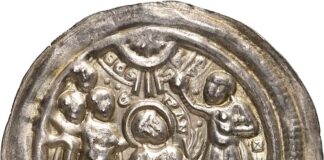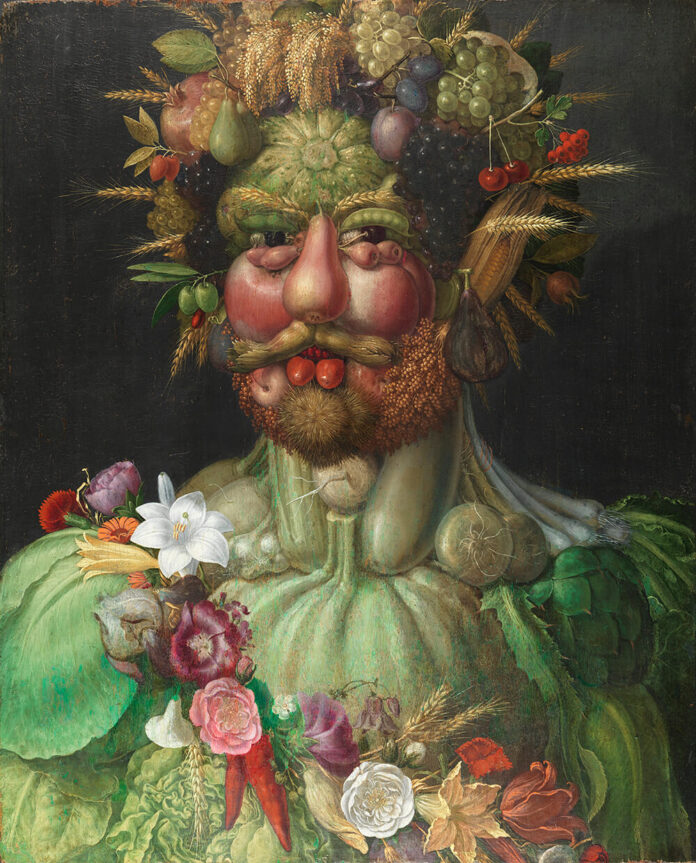
He went down in history as the unworldly emperor who preferred hiding in the witches’ kitchens of alchemists to discussing politics with the powerful figures of his empire. His own brothers rebelled against him and stole his imperial crown while he was still alive. Justly? Unjustly? Let’s try to answer this question.
The Initial Family Situation
Rudolf II was born on 18 July 1552 in Vienna as the third child and eldest surviving son of Emperor Maximilian II and his wife Maria of Spain.
One reason for the Habsburgs’ success was their wealth of children. There were more than enough sons in each generation to ensure the succession. This wasn’t something to be taken for granted in early modern times due to the high infant mortality rate. Maximilian II, Rudolf’s father, had been one of fifteen children, of whom three sons and ten daughters reached an age at which they could be used for dynastic purposes. Maximilian himself produced an impressive amount of sixteen children, including ten sons, five of whom reached adulthood.
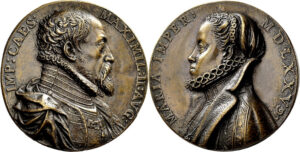
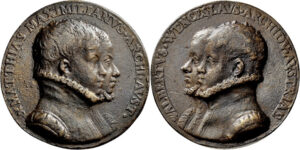
From a dynastic point of view, many sons were a guarantee for a secure succession and, thus, for a powerful family – provided that everyone pulled together. Unfortunately, it happened time and again that younger brothers became ambitious and didn’t serve the cause of increasing the family’s power, but rather claimed their own share of the power (which should obviously be as great as possible). The principle of primogeniture, i.e. only the eldest brother inherits the entire power while younger brothers are left empty handed, was still quite controversial in the 16th century. There was a reason why Charles V had shared his power with his brother Ferdinand I, dividing the House of Habsburg into the Spanish and the Austrian line. And Rudolf II couldn’t avoid assigning important government offices to his brothers as well…
An Inherited Mental Illness?
Rudolf’s parents Maximilian and Maria were descendants of the same grandparents, of Philip the Fair and Joanna, who went down in history as “the Mad”. Many popular scholarly works dedicate numerous pages to the mental illness that Rudolf II inherited from them.
The authors enthusiastically discuss whether Rudolf suffered from schizophrenia, had a manic depression or sort of BPD. A great deal of attention is given to the description of the periods in which the emperor avoided all contact with others, withdrew and suffered from flashes of paranoia and delusions of grandeur. Additionally, there was a lot of alcohol. In fact, Rudolf’s contemporaries already described scenes of real madness. We know that he tried to commit suicide several times. He cut his throat with broken glass and ran into deer antlers to impale himself.
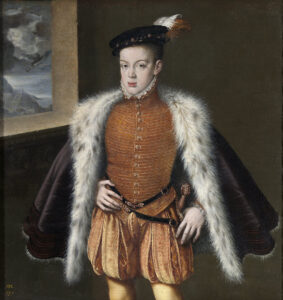
Besides, Rudolf was not the only one suffering from a mental illness. His mother’s brother, Philip II of Spain, also had a mentally unstable child: Don Carlos, who was later promoted from lunatic to freedom fighter by Schiller. And Rudolf’s illegitimate son was affected even more: after the bestial murder of his beloved, whose dead body he dismembered, he was taken into honorary confinement, where he died after one year and a half in a state of mental disorder.
So far, so scandalous. On the other hand, there is what we know about Rudolf’s life. He was one of the most art-minded personalities of his time. The emperor mastered six languages, was well versed in mathematics, physics and in what was to become chemistry later. He discussed with the most intelligent scientists of his time and summoned a notorious controversial theologian to his court to talk about his faith.
Yes, Rudolf was depressed, or what they called melancholic at that time. His melancholy got worse over the course of the years and may have hindered him from dealing with important issues. In this context we must not forget that his illness was the only argument his brother and successor Matthias could bring forward to cover his own ambitions. Which means that there are hardly any unbiased sources. We can only guess what his personality was like from his acts.
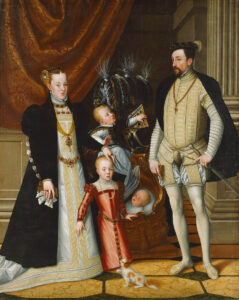
Rudolf in Spain
Rudolf’s father, Maximilian II, was considered a very uncertain candidate for the throne of the empire when he was a child. This was due to the fact that the highly intelligent young man showed an inclination to the Protestant faith at a very early age. Therefore, his uncle Charles V summoned the seventeen-year-old to his court and married him to his daughter Maria of Spain. This way, he ensured that the inheritance remained in the family and that the children of the couple were educated according to the Catholic faith.
In fact, Spanish Infanta Maria had to write to her father shortly after giving birth to their first children that she was completely unhappy about their liberal education. Philip reacted: he threatened and exerted massive pressure until Rudolf’s father Maximilian saw himself forced to send the eleven-year-old together with Ernest, who was two years younger, to Madrid.
The two of them stayed in Madrid for eight years, adapting to the strict Spanish court ceremonial and the rigid religious practices. When Rudolf returned to Vienna, Maximilian was shocked that his little boy had become such a stiff and formal man. The shy but unconcerned child had turned into a taciturn man whom even his closest friends hardly ever saw laugh.
Rudolf brought two things from Spain: his steadfast belief in the absolute dignity of the emperorship and the Spanish court ceremonial, whose most important task was to withdraw the ruler from the sphere of humanity and to place him above everybody else. Regarding his brothers, this meant that they only had access to Rudolf on formal occasions. That’s why many things that could have been dealt with in family discussions became acts of state, which obviously complicated the relationship of the brothers.
Regarding religious issues, Philip II hadn’t been that successful. Only Ernest became a fervent supporter of Catholicism. Rudolf had doubts, though. In his opinion, the emperor stood above the disputing parties without belonging to any of them. Therefore he always made sure that the Spanish influence at his court didn’t become too strong. This was probably one of the reasons why he hesitated for so long to marry his cousin Isabella Clara Eugenia, whom Philip II tried to force on him.
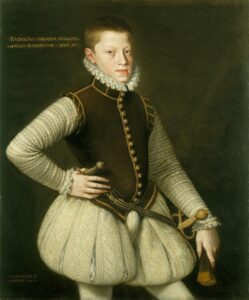
Rudolf Assumes Responsibility
Since his return in 1571, Maximilian II systematically prepared the accession to the throne of his eldest son Rudolf. He was first given the title of governor of Lower Austria, and thus of the centre of Habsburg power. The crucial importance of this area is illustrated by the fact that the archduke of Lower Austria held the highest rank in the empire after emperor and electors.
In 1572 he was crowned King of Hungary, in 1575 King of Bohemia. Rudolf was elected Emperor of the Holy Roman Empire in the same year and thus succeeded Maximilian. One year later, the latter died unexpectedly during the Imperial Diet of Regensburg.
In part 2 you can read how Rudolf was crowned emperor and what challenges he had to face.
Here you can find all episodes of this three-part article.



